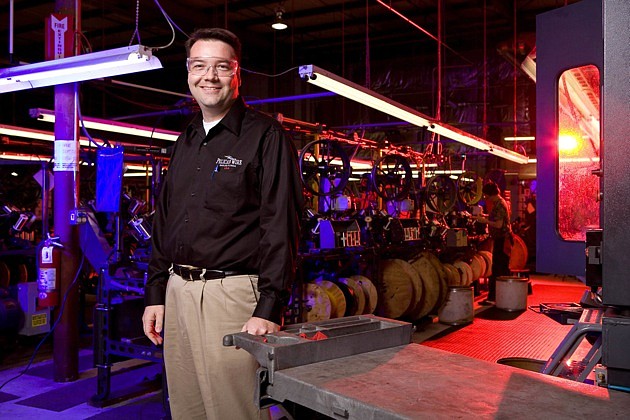One of the Review's Best Managed Companies of 2010.
In the manufacturing business, the gold standard is something called ISO certification.
Widely recognized by manufacturers around the world, ISO is a lengthy and costly exercise in which companies document everything from how machinists should operate equipment to how representatives should respond to customers. Regular audits by accrediting organizations make this an ongoing process.
ISO-certified companies often get a leg up on their competitors when competing for business, which makes it a valuable selling point. But more than that, it's a way for managers to establish formal procedures in a rapidly growing business.
To go through that exercise is challenging during the best of times because it's so time consuming. But it's even harder during a downturn, when everyone works doubly hard to get sales. Just ask the folks at Pelican Wire Company in Naples, who obtained the coveted ISO certification earlier this year.
“It was a very difficult year to be doing it,” says Ted Bill, president of Pelican Wire, whose sales dropped 35% in 2009. The company makes specialty wires for customers in a broad range of industries, from health care to aircraft manufacturing. For example, its wires are used to heat intravenous saline solutions and to de-ice helicopter blades.
Despite the downturn, Bill says the company was determined to complete the yearlong process of certification. “We did it all,” he chuckled. “You get in here on Saturdays and Sundays. It's part of the ownership mentality.” Pelican is an employee-owned company founded by Bill's late father, Larry Bill.
It was costly too, though the state picked up part of the tab. It cost Pelican over $26,000, but a $9,000 training grant from the state offset that cost. Pelican hired a special manager just to shepherd the process.
But the ISO process forced everyone to step back and think longer-term. “It's very easy to get caught up in the day-to-day operations of the business,” Bill says. Annual ISO audits to maintain the certification will enforce that discipline.
The ISO process paid off even a few months after the company was officially certified. Bill says the company recently fumbled an order for a new customer, but didn't lose the business because Pelican promptly corrected the problem using newly created procedures that involved the customer in the resolution.
Documenting every step of the company's processes ensures the company “truly is doing what you say.” What's more, it ensures that knowledge gained by longtime employees can be passed on to new generations.
“If you go back 15 years, quality control was Larry Bill running around the shop floor,” Bill says. “When you get to a certain size, you can't do that anymore.”
Obtaining ISO certification in the downturn will pay off when the economy recovers, Bill says. “It gives you a framework to grow with fewer bumps along the way,” Bill says.
That's important because Pelican is already seeing signs of growth as customers are ramping up industrial production. In particular, he's seeing strength in areas of medical products, military aircraft, wind turbines and integrated circuits. “Our first quarter was very strong,” says Bill.
—Jean Gruss






